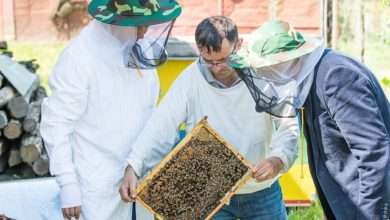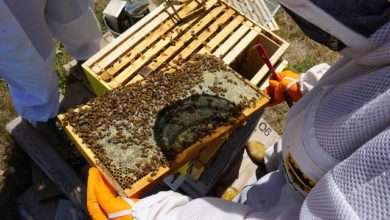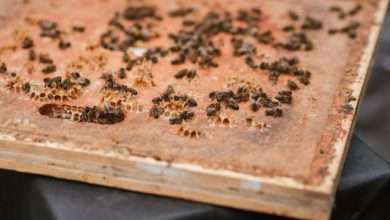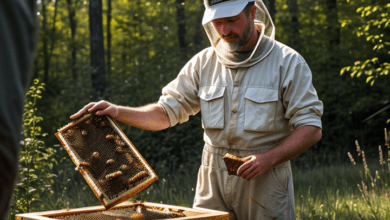Why Organic Beekeeping Supplies Are Better for Your Bees and Environment
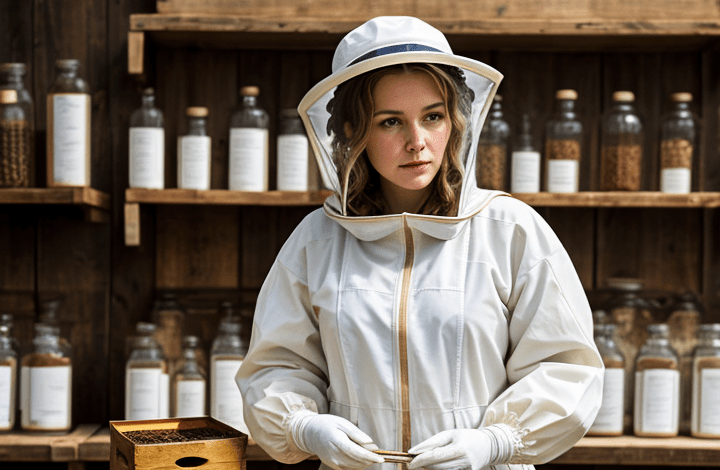
It is no secret that bees are crucial for the health of our planet, and as beekeepers, it is our responsibility to ensure that they have the best possible living conditions. This is where the use of organic beekeeping supplies comes into play. By opting for organic options, we not only contribute to the health and wellbeing of our bees but also positively impact the environment in which they live.
Organic beekeeping supplies, such as hives, frames, and protective gear, are made from natural materials that have not been treated with harmful chemicals or pesticides. This reduces the risk of exposure to toxic substances for bees, ultimately contributing to their overall health and wellbeing.
Additionally, organic supplies support the natural behavior and instincts of bees, allowing them to thrive in their environment without interference from synthetic substances.
Benefits of Organic Beekeeping Supplies
In the world of beekeeping, the use of organic supplies has gained significant attention and appreciation. Organic beekeeping supplies provide numerous advantages not only for the bees but also for the environment and our overall agricultural practices.
- Non-toxic alternatives: One of the primary advantages of organic beekeeping supplies is the elimination of toxic chemicals that can harm both the bees and the environment. Conventional beekeeping often involves the use of pesticides, herbicides, and synthetic substances, which can have detrimental effects on bee health and pollination processes. By opting for non-toxic alternatives, organic beekeepers ensure the well-being of their colonies and contribute to the overall health of the ecosystem.
- Healthier bees: The use of organic supplies has been linked to improved bee health. This is primarily due to the absence of harmful artificial substances that can weaken bees’ immune systems and increase their susceptibility to diseases, parasites, and other stressors. Organic beekeeping practices promote the use of natural remedies and preventative measures, such as essential oils, resistant strains of bees, and chemical-free hive treatments. By prioritizing the health of bees, organic beekeepers create more resilient colonies capable of thriving in their natural environments.
- Reduced environmental impact: Choosing organic beekeeping supplies significantly reduces the negative impact on the environment. Conventional farming practices often involve the use of synthetic chemicals, which can contaminate soil, water sources, and nectar-rich plants. These pollutants not only harm the bees but also disrupt the delicate balance of ecosystems and contribute to the decline of biodiversity. Organic beekeeping, on the other hand, avoids the use of such chemicals and promotes sustainable land management practices, preserving the integrity of our shared environment.
- Support for sustainable agriculture: Embracing organic supplies in beekeeping aligns with the principles of sustainable agriculture. Organic farmers and beekeepers work hand in hand to create an ecological balance that helps maintain healthy and thriving ecosystems. By cultivating pesticide-free gardens and farms, organic beekeepers provide bees with diverse and uncontaminated forage sources. This collaboration fosters a symbiotic relationship between bees and farmers, contributing to the overall sustainability of our agricultural systems.
- Preservation of biodiversity: The preservation of biodiversity is crucial for the long-term well-being of our planet. Organic beekeeping plays a vital role in this preservation by safeguarding the natural habitats and forage diversity essential for the survival of not only bees but also countless other species. When bees have access to a varied and pesticide-free diet, they can play their part in pollinating a wide range of plants, contributing to the health and proliferation of ecosystems worldwide. Organic beekeepers actively contribute to the preservation of biodiversity by promoting the use of organic supplies that sustain the intricate web of life.
By utilizing non-toxic alternatives, promoting bee health, reducing environmental impact, supporting sustainable agriculture, and preserving biodiversity, organic beekeepers play a pivotal role in maintaining a healthy ecosystem. As conscientious beekeepers, adopting organic practices not only benefits the bees but also contributes to the overall well-being of our planet and the sustainability of our agricultural systems.
Organic Beekeeping Equipment
In the world of organic beekeeping, having the right equipment is essential for the well-being and productivity of the bees. Here are some of the various types of equipment required for organic beekeeping, including hive materials, protective clothing, tools and accessories, harvesting and processing equipment, as well as pest and disease management strategies.
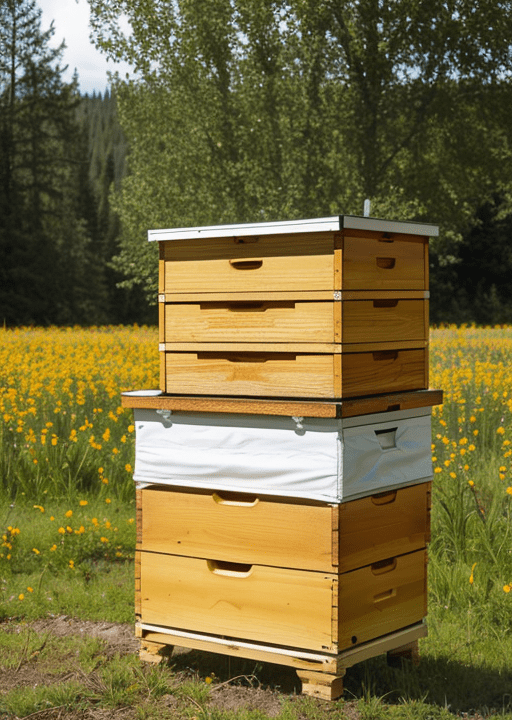
– Hive Materials:
The hive is the primary dwelling place for the bees, and it is crucial to have the right materials to create a healthy and productive environment for them. Organic beekeepers generally choose hives made of sustainable and non-toxic materials such as:
- Wooden Hives: Made from durable and untreated wood, these hives provide excellent insulation and are preferred by many organic beekeepers. They allow the bees to regulate their temperature naturally and are customizable for different hive configurations.
- Natural Fiber Hives: Hives made from materials like straw or reed offer an alternative to wooden hives. These natural fibers allow for good airflow while still providing insulation and protection for the bees.
– Protective Clothing:
Keeping in mind the safety of both the beekeeper and the bees, protective clothing is an essential part of organic beekeeping. It includes:
- Veil and Hat: A good-quality veil and hat combination is necessary to protect the beekeeper’s face and head from bee stings, while still providing adequate visibility and ventilation.
- Beekeeping Suit or Jacket: A full beekeeping suit or jacket, usually made of a lightweight, breathable fabric, provides protection for the entire body against stings. Elastic cuffs and ankle bands ensure a snug fit to prevent bees from entering the clothing.
– Tools and Accessories:
Several tools and accessories are indispensable for organic beekeeping. These tools aid in hive management, honey extraction, and general maintenance. Some essential ones include:
- Smoker: A smoker is used to calm the bees during hive inspections by releasing cool smoke. This helps prevent defensive behavior, allowing the beekeeper to work more safely.
- Hive Tool: A hive tool, often resembling a flat pry bar, is used to separate hive components and scrape off propolis and wax. It is a versatile tool for various hive manipulations.
- Bee Brush: A soft-bristled brush is used to gently remove bees from frames, hive components, or clothing without causing harm. It allows for careful handling of the bees while minimizing the risk of injuring them.
– Harvesting and Processing Equipment:
When the bees have diligently produced honey, organic beekeepers require specialized equipment to harvest and process the honey without compromising its quality. Such equipment includes:
- Honey Extractor: This machine uses centrifugal force to extract honey from the comb without destroying it. It allows the honey to be separated from the wax, enabling efficient harvesting.
- Uncapping Knife: An uncapping knife is used to carefully remove the wax cappings from the honeycomb, exposing the honey for extraction. Electric or manual options are available, depending on the beekeeper’s preference.
– Pest and Disease Management:
Maintaining the health of the bee colony is of utmost importance in organic beekeeping. It involves managing pests and diseases without the use of synthetic chemicals, following sustainable and non-toxic approaches such as:
- Integrated Pest Management (IPM): IPM strategies include regular monitoring, proper hive maintenance, and implementing preventive measures to minimize pest and disease issues. This approach aims to maintain a balance between the bees and their natural predators.
- Non-Toxic Treatments: Organic beekeepers utilize various non-toxic treatments for pest and disease control, such as the use of thermal treatments, essential oils, natural biostimulants, and organic acids. These treatments help ensure the health and vitality of the bees while minimizing environmental impact
Organic Beekeeping Practices
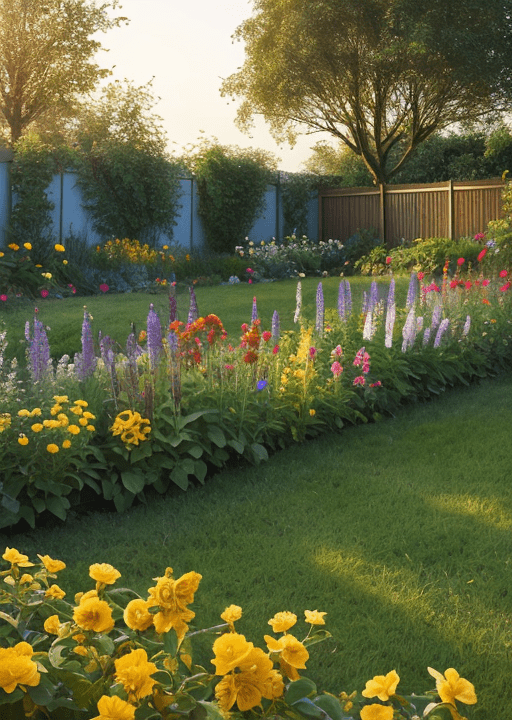
Organic beekeeping seeks to maintain a healthy and sustainable environment for bees, while also producing high-quality honey.
– Natural Hive Management:
One of the key aspects of organic beekeeping is promoting natural hive management. Instead of relying on synthetic chemicals and interventions, organic beekeepers focus on creating a balanced and healthy environment for their bees. This involves:
- Providing sufficient hive space: Organic beekeepers ensure that their hives have enough space to accommodate the growing bee colony. This reduces congestion and prevents colony stress.
- Promoting natural brood cycles: Organic beekeepers allow the bees to follow their natural brood cycle, without artificially manipulating it. This allows the colony to regulate its population and build resilience.
- Encouraging natural comb building: Organic beekeepers allow bees to construct their own honeycomb using natural materials. This promotes healthy cell size and reduces the risk of contaminants found in conventional comb foundations.
– Chemical-free Pest Control:
Organic beekeepers prioritize chemical-free pest control methods to protect their bees’ health and well-being. Instead of relying on harmful pesticides or antibiotics, they employ natural strategies such as:
- Integrated Pest Management (IPM): IPM involves a combination of preventive measures, such as proper hive management and regular monitoring, to reduce the risk of pest infestations. Organic beekeepers focus on strengthening their colonies’ natural defenses against pests like Varroa mites and wax moths.
- Essential oils and organic treatments: Organic beekeepers use essential oils, such as thyme and wintergreen, to control mites and other pests naturally. They may also employ organic treatments, such as formic acid or oxalic acid, to manage Varroa mite populations without harming the bees.
– Sustainable Honey Harvesting:
Organic beekeepers practice sustainable honey harvesting methods that prioritize the well-being of the bees and the environment. This involves:
- Bee-centric harvesting: Organic beekeepers prioritize the needs of the bees during the honey harvesting process. They ensure that enough honey reserves are left for the colony’s sustenance throughout the seasons, preventing excessive stress on the bees.
- Minimal processing: Organic beekeepers strive to minimize the processing of honey to preserve its natural flavor and nutrients. They avoid excessive filtering or heating, which may destroy beneficial enzymes and other compounds present in raw honey.
– Pollinator-friendly Landscaping:
Creating a pollinator-friendly environment around the apiary is essential for organic beekeeping. Organic beekeepers undertake the following practices to support pollinators:
- Planting a diverse range of flowering plants: Organic beekeepers cultivate a variety of nectar and pollen-rich plants that bloom throughout the season. This ensures a steady and diverse food source for bees and other pollinators.
- Avoiding pesticides: Organic beekeepers refrain from using pesticides or herbicides in or around their beekeeping area. They understand the impact of these chemicals on pollinators and focus on natural pest control methods instead.
Ethical and Responsible Beekeeping Practices:
In addition to the above practices, organic beekeepers prioritize ethical and responsible approaches to beekeeping. This includes:
- Providing access to clean water: Organic beekeepers ensure that bees have access to clean water sources near the apiary. They may establish water stations or small ponds to prevent bees from seeking potentially harmful water sources.
- Promoting genetic diversity: Organic beekeepers work towards maintaining genetic diversity within their colonies. This ensures healthier and more resilient bee populations, which are better equipped to withstand environmental challenges.
Conclusion
The benefits of using organic beekeeping supplies are clear. By prioritizing non-toxic alternatives, promoting healthier bees, reducing environmental impact, supporting sustainable agriculture, and preserving biodiversity, organic beekeepers can make a positive impact on the health of their colonies and the surrounding environment. It is essential for beekeepers to consider the long-term impact of their practices and to prioritize sustainable and environmentally friendly approaches to beekeeping.
FAQ:
What are organic beekeeping supplies?
- Organic beekeeping supplies include non-toxic alternatives for hive management, pest control, and harvesting equipment. These supplies are designed to promote the health and well-being of bees while minimizing the impact on the environment.
Why should I choose organic beekeeping supplies?
- Choosing organic beekeeping supplies helps to protect both your bees and the environment. These supplies minimize exposure to harmful chemicals, reducing the risk of detrimental effects on bee health and overall hive productivity. Moreover, organic practices encourage ecosystem preservation and ensure the sustainability of honeybee populations.

How do organic beekeeping supplies benefit the bees?
- Organic beekeeping supplies promote bee wellbeing by preventing unnecessary exposure to synthetic chemicals, antibiotics, and GMOs. By utilizing organic alternatives, you are prioritizing their natural behavior and avoiding detrimental impacts associated with conventional methods.
Do organic beekeeping supplies impact the honey’s quality?
- Yes, organic beekeeping supplies can positively influence the quality of honey. Organic practices exclude the use of artificial chemicals in beekeeping, which allows bees to forage in healthier environments. Consequently, the honey produced is free from potential contamination by pesticides or other harmful substances.
Are organic beekeeping supplies more expensive?
- While organic beekeeping supplies may have a higher upfront cost compared to conventional alternatives, their long-term benefits often outweigh the initial expense. Additionally, as consumer demand for organic products expands, economies of scale may help reduce these costs, making them more affordable in the future.
Are there any disadvantages to organic beekeeping supplies?
- Organic beekeeping supplies generally have no significant disadvantages. However, depending on your location and specific circumstances, access to organic supplies or variations in their availability might be a slight challenge. Nevertheless, the increasing demand for organic products is likely to address these issues over time.
